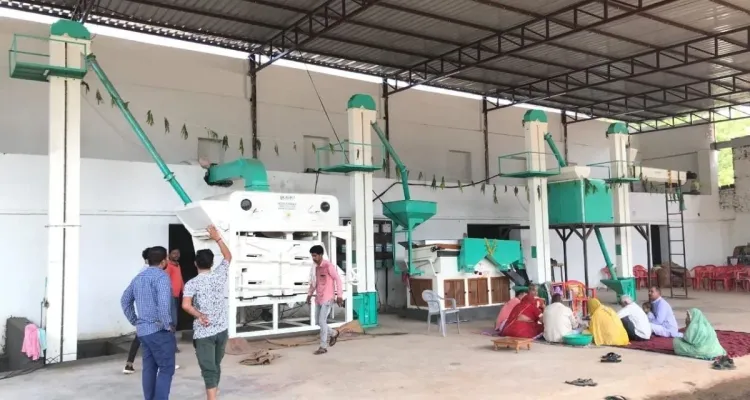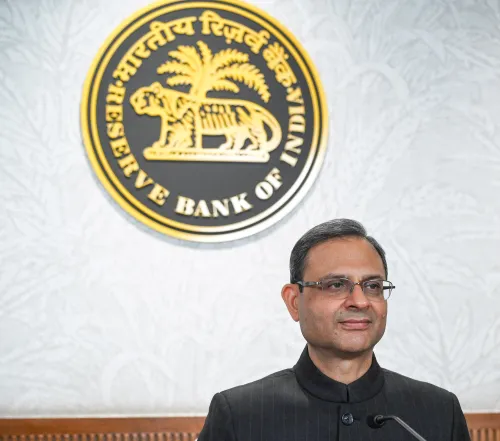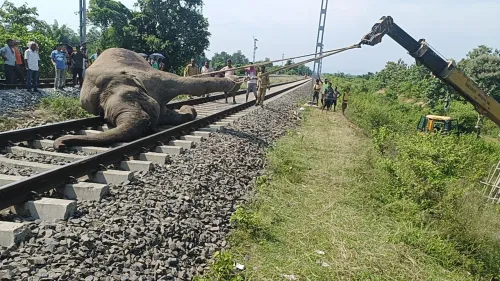Can AI and IoT Propel India to the Forefront of Global Food Processing?

Synopsis
Key Takeaways
- AI and IoT are revolutionizing food processing.
- India faces significant challenges, including food wastage.
- Government initiatives aim to bolster the food processing sector.
- Consumer preferences are changing towards sustainability.
- A collaborative effort is essential to unlock the sector's potential.
New Delhi, July 7 (NationPress) The food processing sector in India is poised for a sustainable future fueled by technological advancements and digital innovation, positioning the nation as a leader on the global stage, as outlined in a report released on Monday.
The collaborative knowledge report by ASSOCHAM-PwC, unveiled at the Food Tech conference organized by ASSOCHAM, highlights that technologies linked to Industry 4.0—such as artificial intelligence (AI), the Internet of Things (IoT), blockchain, robotics, and automation—are fundamentally reshaping how food is processed, stored, and transported.
These cutting-edge innovations are enhancing operational efficiency, food safety, quality control, and supply chain transparency.
With the global food robotics market anticipated to soar to $6.08 billion by 2032, the report identifies a significant opportunity for India to leverage these technologies, particularly in addressing critical challenges like post-harvest losses, which cost the country around Rs 1.53 trillion annually.
“India's ambition to evolve into a developed and self-reliant economy—Viksit Bharat—is intricately tied to the transformation of its food processing ecosystem,” stated Manish Singhal (Secretary General, ASSOCHAM).
“A proactive and sustained approach is crucial for adapting to the changing landscape of India's food processing sector—an industry recognized as a key economic driver and a vital link between agriculture and the nation’s nutritional demands,” he added.
The report also shed light on the challenges faced by the industry, including supply chain traceability, limited processing coverage, environmental issues, and a shortage of skilled labor.
Additionally, it highlights the significant costs associated with food wastage and foodborne illnesses, estimated at $936 billion and $110 billion, respectively, each year.
It advocates for enhanced compliance and safety protocols utilizing digital tools to reduce these losses and ensure improved food security for all.
Moreover, the report emphasizes government initiatives such as the Pradhan Mantri Kisan Sampada Yojana (PMKSY) and the Pradhan Mantri Formalisation of Micro Food Processing Enterprises (PMFME), which aim to fortify the food processing ecosystem, minimize wastage, and formalize the sector.
“Engaging in discussions about emerging food processing technologies is essential for fostering stakeholder collaboration to encourage large-scale adoption. The food processing sector in India has immense potential, especially with increasing global interest and export opportunities,” remarked Shashi Kant Singh, Partner - Agriculture and Food Sector, PwC India.
Shifting consumer preferences are also influencing the future of the industry, with the report noting a rising demand for sustainable packaging, plant-based proteins, and clean-label products—trends that reflect growing awareness of health and environmental impacts.
The report calls for a collective effort involving policymakers, industry leaders, academia, and startups, supported by modern infrastructure and a conducive policy environment, to unlock the sector’s full potential.










